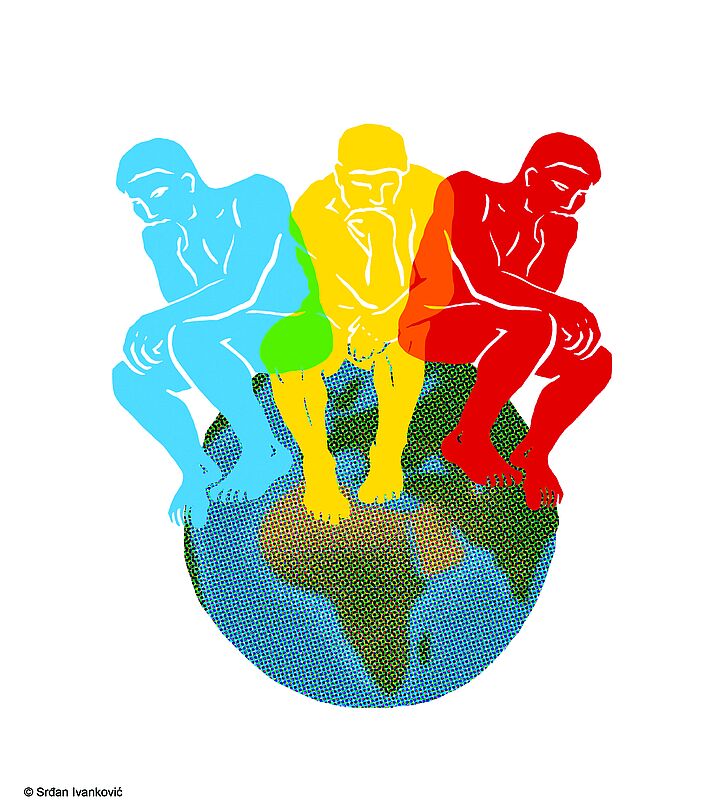Freitag, 26. Mai 2017, 09:00 - 19:00 iCal
Topologies of Thinking
Contents, Positions, and Translations of Contemporary Theory
Universität Zagreb, Philosophische Fakultät
Ivana Lucica 3, 10000 Zagreb, Kroatien
Tagung, Konferenz, Kongress, Symposium
Just as Leslie Fiedler claimed back in the 1950s, literary criticism is "always becoming 'something else,' for the simple reason that literature" has been "always 'something else'," what we today understand as theory – a specific multiplicity of discourses that has emerged in literary departments worldwide – resists to be defined. Intended to help achieve a degree of scientificity in literary studies, it soon developed (especially in the US) into something Jacques Derrida described as a "theoretical monster." However, the concept of theory has a long tradition that goes beyond the kind of the so-called a de Manean or Derridean deconstructive criticism. Even though one can trace the idea of theoria back to Pythagoras, defined as a free contemplation detached from the bare necessities of life by Plato and Aristotle, has become a concept close to or almost synonymous with philosophy. Responding to this understanding of theory as philosophical contemplation (of the divine), the early German Romantics, in their discussions of philology, literature and literary criticism, as Rodolphe Gasché explained following Jean-Luc Nancy and Philippe Lacoue-Labarthe, produced a new concept of a science of literature which can be seen as the beginning of certain contemporary trends in literary studies. In other words, this specific kind of writing about literature, about its essence, its self-perception, appropriating concepts from various disciplines (what we today understand as humanities), was described by the Romantics as theory.
No sooner was theory granted a special status from without by the Romantics than it underwent a crisis from within. As it has been repeatedly emphasized, the history of theory is often being presented as a narrative of declension, of fall, of loss of influence and institutional prominence. The 1970s, the 1980s and especially the early 1990s, with various important contributions from postcolonial, feminist, gender theory, New historicism and discourse studies, have mainly been regarded as the golden era of theory. This would mean that we are living in the aftermath of the so-called high theory or Theory. As James Berger reminds us in his study of representations of post-apocalypse, if the end were actually to occur, we would not be able to recognize it as such. Why would this not be the case with theory? Whether we accept this narrative or not, no matter how we identify beginning of theory's fall, whichever decade we describe as its height, one has to agree with Jane Elliott and Derek Attridge that "even in its fallen state," it remains within the same intellectual boundaries. In other words, theory continues to do what it has always done: it re-thinks its own procedures, re-examines its own identity, questions its elusive essence, discusses its own boundaries and limits. Accordingly, it continues to resist totalizations and thereby subsists in its irreducible heterogeneity – whether it defends its poststructuralist legacy, whether it renews aesthetics, addresses the problems of biopolitcs and ethics, or argues for a scientific turn in theory (in order to demonstrate how technoscientific facts legitimize earlier theoretical insights) – it persists in being always something other. Since theory is "called upon to investigate its cohabitation with its disseminated leftovers," as Vladimir Biti states, this conference could be the opportunity to think it outside usual temporal and spatial binaries: before and after, theory and post-theory.
Zur Webseite der Veranstaltung
Veranstalter
Universität Zagreb, Philosophische Fakultät
Kontakt
Ivana Perica
Universität Wien
Institut für Politikwissenschaft
06503511184
ivana.perica@univie.ac.at
Erstellt am Donnerstag, 27. April 2017, 10:05
Letzte Änderung am Dienstag, 02. Mai 2017, 09:16

